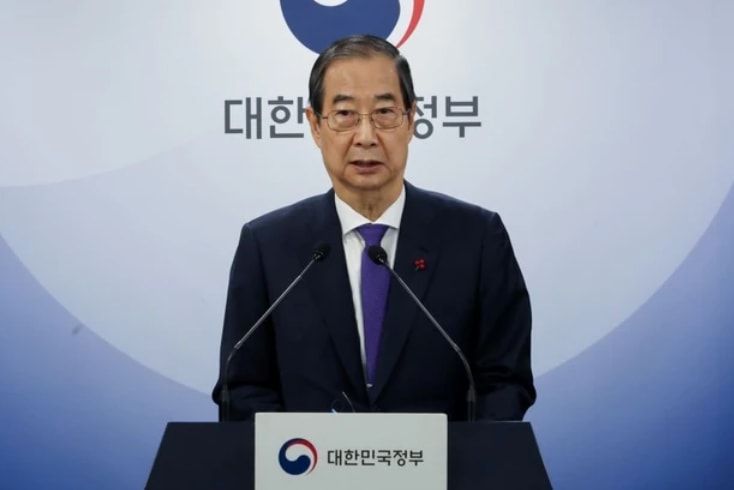The impeachment of Acting President Han Duck Soo by the South Korean opposition stems from disagreements over the approval of bills passed by the opposition, led by the Democratic Party.

The political crisis in South Korea is spreading and there is no end in sight when the South Korean National Assembly, dominated by the opposition Democratic Party (DP), voted on December 27 to impeach acting President Han Duck Soo.
Mr. Han Duck Soo has replaced President Yoon Suk Yeol to run the country since December 14 when Mr. Yoon Suk Yeol was suspended under the impeachment resolution of the Korean National Assembly regarding his responsibility for declaring martial law.
The impeachment of Acting President Han Duck Soo is the latest development in an unprecedented political crisis in South Korea that began with President Yoon Suk Yeol's imposition of martial law on the night of December 3.
The opposition's impeachment of Acting President Han Duck Soo stemmed from disagreements over the approval of bills passed by the opposition, led by the Democratic Party, and Han Duck Soo's rejection of the appointment of three Constitutional Court judges nominated by the opposition-controlled National Assembly.
Under current rules, the Constitutional Court needs the approval of at least six of its nine justices to remove President Yoon Suk Yeol from office. However, with only six justices currently in office, the possibility of achieving 100 percent consensus seems uncertain. The appointment of three more justices to complete the nine positions is something the opposition has been pushing for and is also the focus of the current political struggle between the ruling People's Power Party (PPP) and the Democratic Party in the National Assembly.
It remains unclear whether Acting President Han Duck Soo will be impeached, even though the National Assembly voted to impeach him with 192 votes in favor of the 192 present. National Assembly Speaker Woo Won Sik said that only a simple majority (151 out of 300) is needed to pass a resolution to impeach the Acting President.
Thus, the DP, which holds a majority of seats in the Korean legislature, can impeach any Cabinet member holding the presidential office if the Constitutional Court recognizes the above condition in terms of votes.
However, the PPP Party believes that the resolution to impeach the acting President must have 2/3 of the votes in favor, equivalent to 200 out of the total 300 seats in the National Assembly.
The PPP has protested the opposition-led unilateral move and filed a lawsuit with the Constitutional Court over the validity of the December 27 parliamentary vote.
If the impeachment of Acting President Han Duck Soo is ruled constitutional, Deputy Prime Minister and Finance Minister Choi Sang Mok will officially assume the role of acting president.
As for President Yoon Suk Yeol, his political fate now depends on the Constitutional Court. On December 27, the Constitutional Court convened the first preparatory session for the impeachment trial of President Yoon Suk Yeol, presenting arguments, arranging the order of the debate, examining the submission of evidence, and relevant documents for the debates. The earliest formal debates are expected to be held around mid-January 2025.
The Constitutional Court has 180 days to make a final ruling on the impeachment of President Yoon Suk Yeol. If the impeachment is accepted, President Yoon Suk Yeol will be removed from office and an early election will have to be held within 60 days to choose a new president.
As of now, the opposition DP Party Chairman Lee Jae Myung is leading in opinion polls with a much higher support rate than other candidates.
TB (according to VNA)